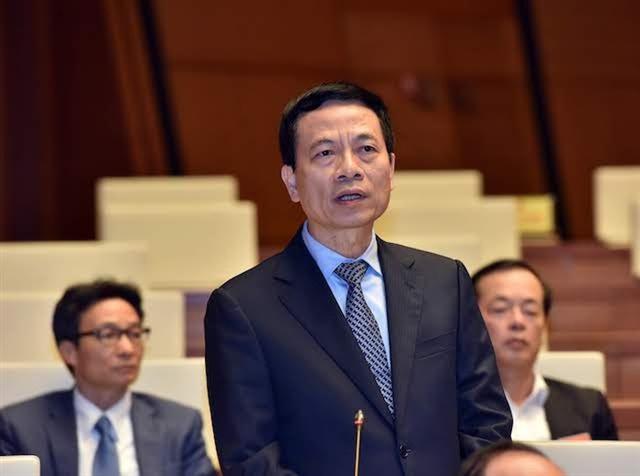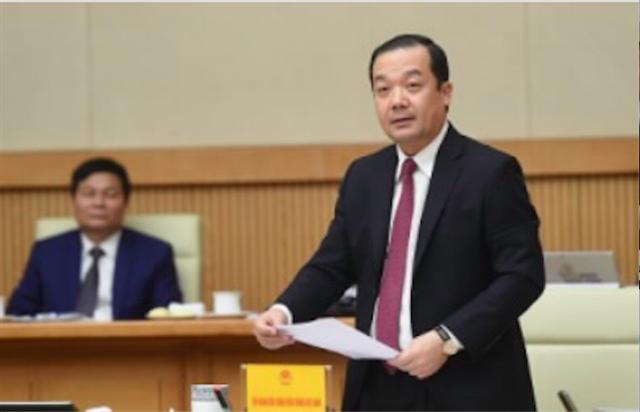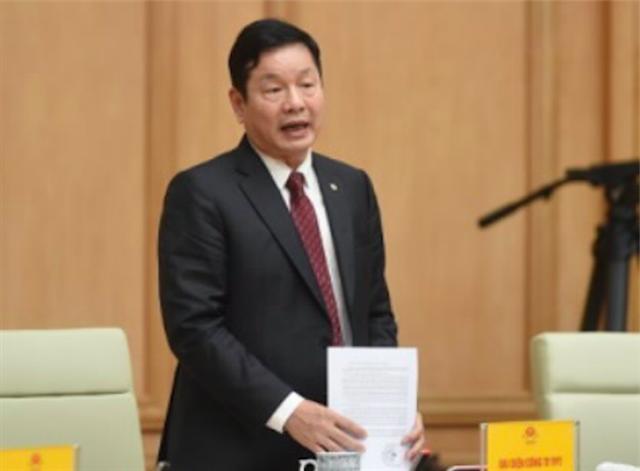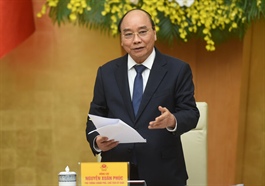Vietnam’s e-government set to be completed by 2025: Minister
Vietnam’s e-government set to be completed by 2025: Minister
A strategy for the transformation from an e-government to a digital government is set to be approved in this first quarter or early second quarter.
Vietnam is set to complete the formation of e-government by 2025 with 24-hours automatically provided services.

Minister of Information and Communications Nguyen Manh Hung. Photo: Kinh te & Do thi
|
Minister of Information and Communications Nguyen Manh Hung revealed the information at a meeting of the National Committee on E-government on March 10, adding that the government needs to complete the key components of e-government this year with a focus on providing 100% of online public services at advanced stage 4, the highest in a four-level scale of e-government.
"To realize these ambitious targets, the government should allocate sufficient funding from state budget for e-government development," he said.
“Each province/city and ministry should spend 1% of their yearly budget to develop e-government, which is the world’s average amount,” Hung added.
To date, 55% of online public services in Vietnam are being provided at stages 3 and 4, which allow people to realize administrative procedures and make payment online.
In 2020, the rate of online public services at stage 4 was estimated at 30.86%, a significant improvement from the 1.42% rate recorded in 2016.

Chart: Ngoc Thuy
|
Hung said a strategy for the transformation from an e-government to a digital government is set to be approved in this first quarter or early second quarter.
“The most important point in this strategy is the government’s capability in providing digital services for the people, while the public administration shift its operation into a digital environment,” said Hung.
“Database and digital technologies would be utilized to redesign the operation of the government to ensure greater efficiency in the decision-making process and subsequently better social management,” Hung stressed, saying the government would lead the national digital transformation process.
Hung added the digital government strategy set up five main objectives, including providing high quality public services; mobilizing people and enterprises in using online services; optimizing the operation of government agencies based on digital technologies; solving major issues during the socio-economic development process, such as healthcare, education and transportation.
Active participation of local enterprises

Chairman of the Vietnam Post and Telecommunications Group (VNPT) Pham Duc Long. Photo: Quang Hieu
|
Chairman of the Vietnam Post and Telecommunications Group (VNPT) Pham Duc Long said given the financial and technologies capabilities at disposal, local enterprises are able to solve difficult issues during the national digital transformation process.
“Digital firms should accompany local governments in terms of technology, system and the operational framework to meet demands of each locality,” said Long, adding this is the key point to accelerate the digitalization.

Vice General Director of Viettel Nguyen Dinh Chien. Photo: Quang Hieu
|
Referring to technologies developed on the “Make in Vietnam” platform that helped ensure the country’s effective response against the Covid-19 pandemic, Vice General Director of Viettel Nguyen Dinh Chien expressed strong belief that the country has gathered required conditions to successfully move towards a digital society.
In this regard, Chien expected the government to soon complete a legal framework for digital platforms, digital economy and society.
“Enterprises should be able to access digital data formed during the operation of e-government to create new value for the people, enterprises and the government,” he noted.

Chairman of FPT Group Truong Gia Binh. Photo: Quang Hieu
|
To further boost the digitalization process, Chairman of FPT Group Truong Gia Binh called for a clear financing mechanism for such activities.
“Ministries and localities seem to be in the dark of the financial plan for IT development next year,” Binh said.























